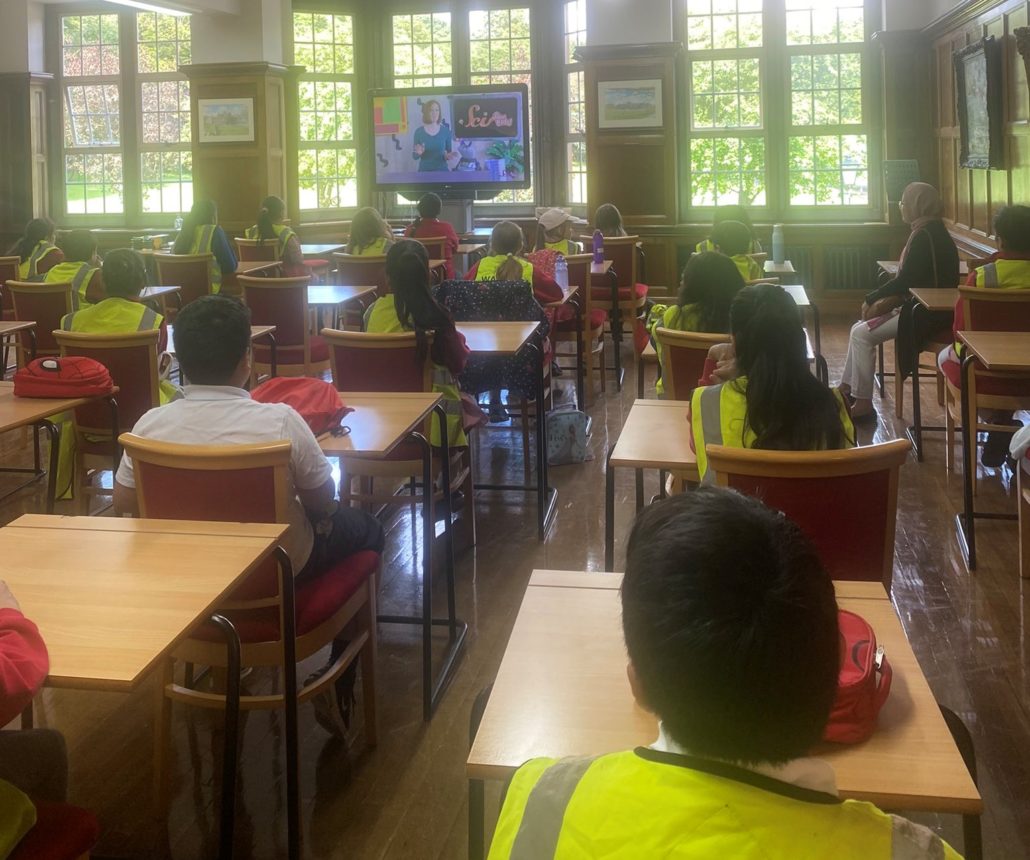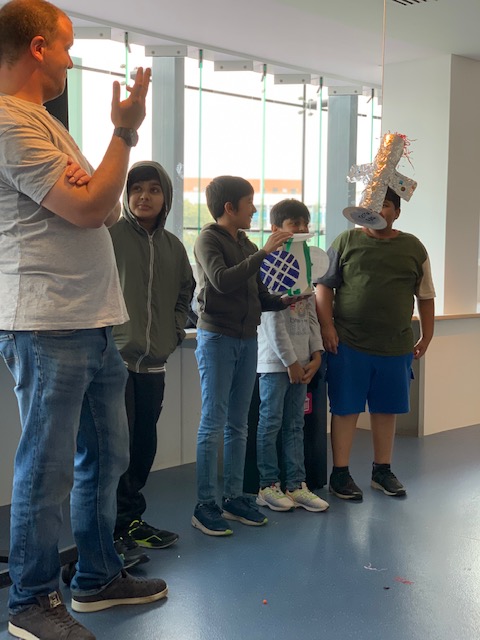Meet Tim Rogers, of the Yorkshire Space & Satellite Centre
We’re very excited that Impact Hub will be supporting on of the district’s most interesting social entrepreneurs, Tim Rogers, a founder of the Yorkshire Space & Satellite Centre (YSSC).
A few months ago, we spoke to Tim about his ideas for the centre and introduced him to the Leo accelerator programme for space technology startups. Last week, we had a chance to catchup and see how the centre’s been developing and his experience of the Leo programme…
My aspirations are to have a dedicated facility which will provide a space for schools to learn about space, satellites and more broadly STEM FE, HE and careers. I feel this is important as all astronauts have a STEM background regardless of the work they do, I also see the widening gaps we have in this country which have existed long before Covid and in my experience the lockdowns and restrictions have only accelerated the widening of the: skills gap; aspiration gap; inequality gap. We hear a lot about ‘levelling up’ I’m unsure as to the governments definition but many people I speak to have their own definition and it seems clear that there is a big awakening and realisation of the lack of opportunities young people have here (Northern England) as opposed to young people in the South East a long with a lot of other social issues we experience daily. I’m delighted to say that we have recently received grant funding from UnLtd to acquire a 3D printer which allows us to provide skills in 3D printing a huge growth area for the economy, we are in Bradford a heartland of manufacturing and engineering with roots as pioneers in the first industrial revolution, the YSSC illustrates that history and looks at the future growth areas including 3D printing, augmented reality, virtual reality, artificial intelligence and green energy we also have a focused eye on the metaverse which has the potential to change our species experience in very powerful ways. The YSSC is also a place to make stuff, we have a satellite programme where students are empowered to: design; create; manufacture; fabricate and launch satellites into space, as well as the programme to 3D a replica International Space Station which once complete will be a workspace, event space and classroom.

Programme with Year 5 pupils at Heaton St Barnabas Primary School (July 2021)
I very much hope so, it is possible and we are committed to launch in 2022. However, there are some challenges in our way, the first being global supply chains and the rising price of oil, it hurts me that we are so dependent on oil but we are and when the price rises it puts projects like ours in harms way. Funding is never easy to come by and we have to make every penny count which we will always do. Our next issue is Brexit and I hesitate to use the word as it is so toxic, as a country with such a long history in science, reason, logic and mathematics how we can have done this to ourselves is beyond my comprehension. I’m confident of our 2022 launch though as we do have great partners here with the business community wanting this to happen as well as the educationalists, politicians and civic leaders – you need all of those to buy in and come with on a journey like this.
It’s awesome, I’m meeting 19 other businesses who are doing amazing things with lasers, satellites, human space travel and loads more stuff including really interesting infrastructure for a Moon Base. UKSA have great plans for our space programme as a country and we have some truly amazing entrepreneurs making those things a reality and the YSSC plays it part. Looking more in the round the business structuring and alignment of business goals, building audience, creating value are skills I’m learning everyday. It is a collaborative approach supported by the other businesses and a mentor. Something I’m both proud of and at the same time hoping we see more of in future Leo accelerator programmes is that I’m the only CIC, I think as a legal structure a CIC is perfect for lots of businesses and entrepreneurs to think about because it allows you the legal space to create value, build communities and eco systems and really help the economy and shape our future.


Tim with Digital Makers in a Summer School programme at the Science Museum(August 2021)
For me this is such a huge opportunity, space is firmly on the agenda and if we can get more people involved then we can create a rebalanced economy, we have to look at the world through the lens of climate change, there is no doubt that extreme weather events, rising temperatures and changing environments will create more displaced people and unsecure communities. There are no oil rigs in space, there are no gas pipes in space, we have to learn how to use renewable energy and store it efficiently which are the same challenges that people on the ISS have to do as well as future hubs on the Moon, Mars and even beyond that. It is exciting, it is difficult but we are only limited by imagination – what I’m saying is talk to us and the wider STEM community, the Science Museum is a great place to go and meet like minded people as well as engaging locally with space/tech groups or in a wider groups across social media and multiplayer games – in the future the metaverse. Communities will learn new skills and also strengthen communication, resilience and confidence, I really believe in sharing ideas and having conversations about new ways of thinking and new ways of developing our community and world. It is easy to write this from my house in the middle of the countryside but you are not one thing, you don’t have one option there is always choice and always the opportunity to do something new, many people will tell you it is not possible, many people will tell you that you can’t do it, those people are wrong – talk to us and talk to the science museum, businesses, colleges and university
Yes is the short answer, I really want to get to know other social entrepreneurs who are tech/STEM focused, I think it is important for me to get to hear their stories and promote their businesses as well as me being able to do the same. We are a group who have social value at our hearts and the opportunity to share ideas is critical to furthering this business as well as other ones.